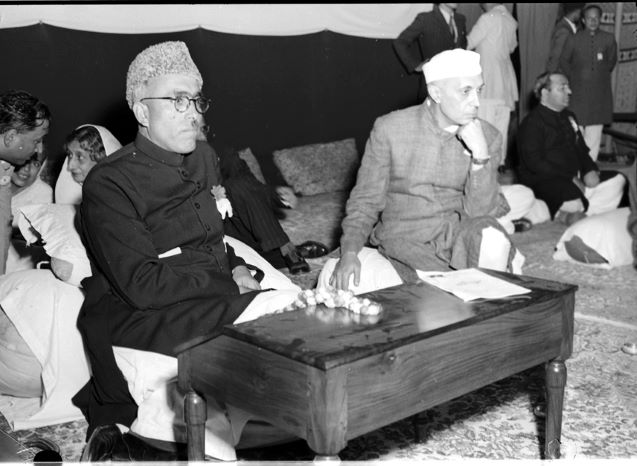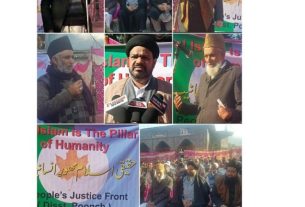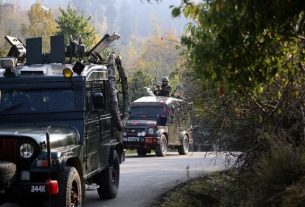Fearing that the release of a set of “sensitive” documents regarding Kashmir from 1947 could impact foreign relations, India “may prevent” the declassification of the letters, a Guardian report said.
According to internal government documents seen by the outlet, the letters known as Bucher papers may contain military and political arguments pertaining to the reasons that made first Indian prime minister Jawaharlal Nehru call for a ceasefire with Pakistan and gave a special status to India-occupied Jammu and Kashmir.
The report, published on February 14, states that the Bucher papers referred to the communication that took place between the second commander-in-chief of the Indian army, Roy Bucher, and government officials including Nehru.
It highlighted how the region of IIOJK “was given a separate constitution, a flag, and autonomy over all matters except for foreign affairs and defence” for decades which was seen as a pivotal measure for protecting the rights of Kashmiris in the Muslim-majority state.
“But in 2019, under the Hindu nationalist Prime Minister, Narendra Modi, the government in Delhi formally revoked the disputed state’s constitutional autonomy, in an attempt to integrate it fully into India,” the report added.
“The decision tightened the government’s grip over the region and stoked anger and resentment as a three-decade armed revolt continued to rage.”
It further said that activists have made several attempts over the years to declassify the papers in a bid to shed light on the reasoning of Article 370 that gave IIOJK a special status.
The report maintained that the documents seen by the foreign media outlet revealed that the papers should not be declassified yet as they contain “military operational matters in Kashmir and correspondences amongst senior government leaders on sensitive political matters on Kashmir”.
“The papers have been kept at an autonomous body under India’s culture ministry known as the Nehru Memorial Museum and Library,” it said, adding that the papers reveal that Nehru “was aware and informed of the military development in Kashmir, including Pakistan’s attempts to use external military assistance to escalate the situation”.
The report cited a source with knowledge of the matter, saying: “Roy Bucher suggested a political approach to solve the escalating situation given military fatigue faced by Indian troops due to 13 months of military deployment, including taking the matter before the United Nations.”
It said the advice might have influenced Nehru’s decision to grant Kashmir special status.
“I want to stress that it is only the people of Kashmir who can decide the future of Kashmir,” Nehru had told India’s parliament in 1952. ’We are not going to impose ourselves on them on the point of the bayonet“.
The report furthered that the Bucher papers were handed over by the Indian foreign ministry to the Nehru museum and library in 1970. “They should be kept classified,” read the note with it.
According to the external affairs ministry document, the papers have remained in the library’s closed collection since then.
The report also said that Indian activist Venkatesh Nayak filed multiple appeals to declassify the papers. His move was rejected but “in 2021 the Indian information commissioner ruled it was in the national interest but fell short of ordering the disclosure of the crucial documents”.
“The order advised that the library may seek the foreign ministry’s permission to declassify the papers for academic research,” it added.
In another letter dated October 12, 2022, also reviewed by the Guardian, “chair of the museum and library, Nripendra Misra, wrote to India’s foreign secretary arguing the papers “are very important for scholarly research” and requested declassification”.
Misra had argued that they had read the contents of the Bucher papers, saying: “Our view is that the papers need not remain classified beyond the reach of academicians. We are opening papers of other important public figures also”.
The report said India usually allows the declassification of archival documents after 25 years, adding that according to sources, the Indian government had yet to take a final decision on the Bucher papers matter.
“The foreign ministry argued in the document that the disclosure of the papers should be put in abeyance for the time being and advised that the sensitivity of Roy Bucher papers and the likely implications of their disclosure should be examined further,” it added.
The report concluded that the publication had contacted the Indian external affairs ministry and the Nehru Memorial Museum and Library for a comment.__Dawn.com





